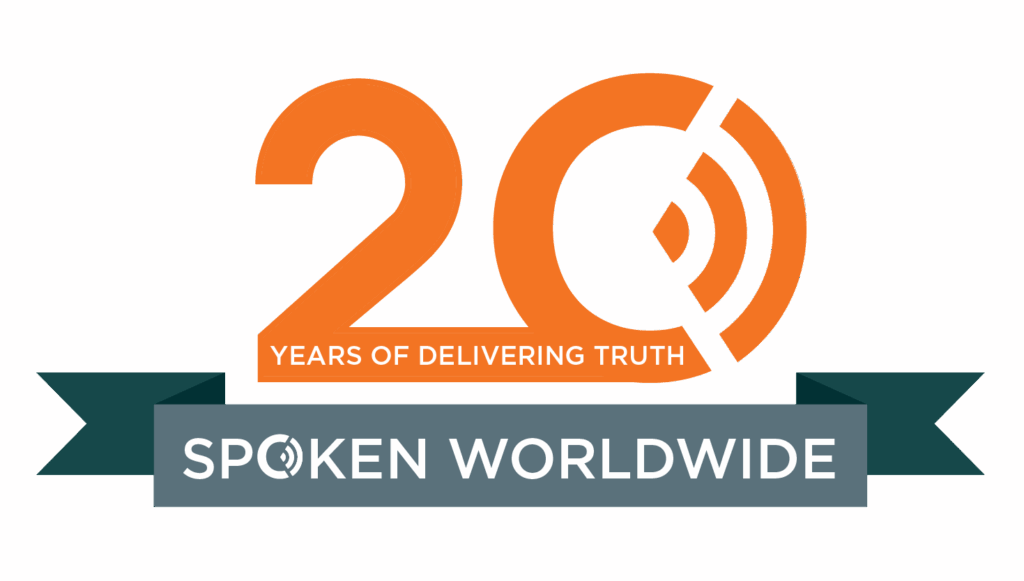In today’s world, the ways in which we communicate and understand information can vary greatly from society to society. While some cultures rely heavily on reading and writing, others rely more on oral communication methods. Understanding the key concepts surrounding oral cultures and literate societies is crucial for those in cross-cultural ministry. Furthermore, it is also for anyone interested in global affairs. This article delves into important terms such as literacy, oral communication, heart language, and missiology, and provides a wealth of statistics and resources for further exploration. Let’s look at the importance of understanding orality.
Where can I research this more?
If you’re interested in learning more about the facts and figures surrounding global literacy levels and oral cultures, the following references provide a wealth of information. Each of these links delves deeper into the issues discussed in this article, with a particular focus on missiology and cross-cultural ministry. From informative videos and white papers, to research studies and articles, these resources offer a comprehensive look at the state of orality and literacy around the world. Whether you’re a student of theology, a cross-cultural worker, or simply someone with a keen interest in global affairs, these references are sure to provide valuable insights.
Research Orality and Literacy Online:
- The Lausanne Congress’s webpage on orality: https://lausanne.org/networks/issues/orality
- Provides information on the extent of oral communication around the world
- Includes perspectives and resources from cross-cultural ministry experts
- Offers statistics and equally important research on the use of oral communication in global missions
- Dr. Grant Lovejoy’s address at the 2010 Lausanne Congress: https://youtu.be/CCwWx5IC1Qw
- Gives insight into Dr. Lovejoy’s research and understanding of orality
- Provides statistics on the extent of oral communication in 2010
- Discusses the implications of orality for cross-cultural ministry
- Dr. Grant Lovejoy’s white paper, “The Extend of Orality: 2012 Update”: https://storage.snappages.site/pp6xz7opqw/assets/files/Lovejoy-Extent-of-Orality-2012.pdf
- Gives a detailed explanation of Dr. Lovejoy’s research on orality
- Includes updated statistics on the extent of oral communication in 2012
- Discusses the challenges and opportunities of oral communication in global missions
- UNESCO’s page on literacy statistics: https://data.uis.unesco.org/Index.aspx?DataSetCode=EDULIT_DS
- Provides current and historical data on literacy rates around the world
- Offers a breakdown of literacy rates by country and by age and gender
- Allows users to generate custom reports and visualizations of the data
- The International Missions Board’s webpage on orality: https://www.imb.org/orality/
- Offers resources and information on the use of oral communication in global missions
- Includes articles and videos on the practice and theory of orality
- Provides links to training and support for oral communication in cross-cultural ministry
-
Spoken’s webpage on orality: https://www.spoken.com/orality-2/
- Explains Spoken’s approach to cross-cultural ministry through oral communication
- Includes testimonials and success stories from oral communication ministry
- Offers resources and opportunities to get involved in oral communication ministry
- Spoken’s webpage on Spoken’s ministry: https://www.spoken.com/what-we-do-2/
- Provides an overview of Spoken’s mission and approach to cross-cultural ministry
- Includes information on the various forms of media and subsequently communication used in ministry
- Offers information on how to get involved and in fact support Spoken’s work.
 Research Understanding Orality and Literacy in Print:
Research Understanding Orality and Literacy in Print:
If you’re interested in exploring the topic of literacy and oral cultures further, we’ve also compiled a list of books that delve into these issues in more detail. From academic studies to personal narratives, these books provide valuable insights and perspectives on the complex and nuanced nature of literacy and communication around the world.
- “Orality and Literacy: The Technologizing of the Word” by Walter J. Ong – This book explores the relationship between oral and written forms of communication, and how each has shaped human culture and consciousness in different ways. https://www.amazon.com/Orality-Literacy-Technologizing-Walter-Ong/dp/0415287594
- “The Global Literacy Challenge” edited by Pratham Books and Room to Read – This book provides a comprehensive overview of the state of literacy around the world, highlighting the challenges and solutions for improving literacy rates in developing countries. https://www.amazon.com/Global-Literacy-Challenge-Pratham-Books/dp/8192213700
-
“The Power of Reading” by Stephen D. Krashen – This book examines the research on reading instruction and the impact of literacy on individuals and society, making a case for the value and importance of reading.https://www.amazon.com/Power-Reading-Instruction-Achieving-Society/dp/1563085063
- “Literacy and Orality: Studies in the Technology of Communication” by Ruth Finnegan – This book looks at the ways in which literacy and orality interact and shape culture, and the implications of this relationship for language and communication. https://www.amazon.com/Literacy-Orality-Studies-Technology-Communication/dp/0631149127
- “Reading in the Brain: The Science and Evolution of a Human Invention” by Stanislas Dehaene – This book provides a neuroscientific perspective on reading and its development, discussing the cognitive and neural processes involved in reading, and how reading has changed over time. https://www.amazon.com/Reading-Brain-Science-Evolution-Invention/dp/0465021037
- “The Literacy Myth: Cultural Integration and Social Structure in the Nineteenth-Century City” by David Paul Nord – This book explores the social and cultural factors that influenced the development of literacy in America during the 19th century, challenging the idea that literacy is solely the product of education and access to books. https://www.amazon.com/Literacy-Myth-Integration-Nineteenth-Century-City/dp/0807845557
- “Literacies” edited by Brian Street – This book is a collection of essays by leading scholars in the field of literacy studies, however exploring the cultural and social dimensions of literacy and the ways in which literacy is acquired and used in different contexts. https://www.amazon.com/Literacies-Brian-Street/dp/0415118418
- “Literacy in Historical Perspective” edited by David Cressy – This book provides a historical perspective on literacy, examining the ways in which literacy has changed over time and the social and cultural factors that have influenced its development. https://www.amazon.com/Literacy-Historical-Perspective-David-Cressy/dp/052140185X
- “The Alphabet Effect: The Impact of the Phoneme on the Development of Western Civilization” by Robert K. Logan – This book explores the impact of the phoneme on the development of writing systems. It also looks at the ways in which the alphabet has shaped Western civilization, providing insight into the relationship between orality and literacy. https://www.amazon.com/Alphabet-Effect-Phoneme-Development-Civilization/dp/0962889926
- “Literacy in the 21st Century” by David Barton, which provides an in-depth analysis of the state of global literacy and offers strategies for addressing the challenges of low literacy levels. https://www.amazon.com/Literacy-21st-Century-David-Barton/dp/1403917204

 Research Understanding Orality and Literacy in Print:
Research Understanding Orality and Literacy in Print: